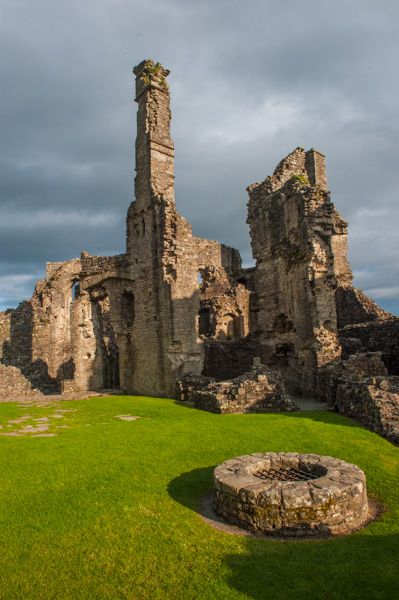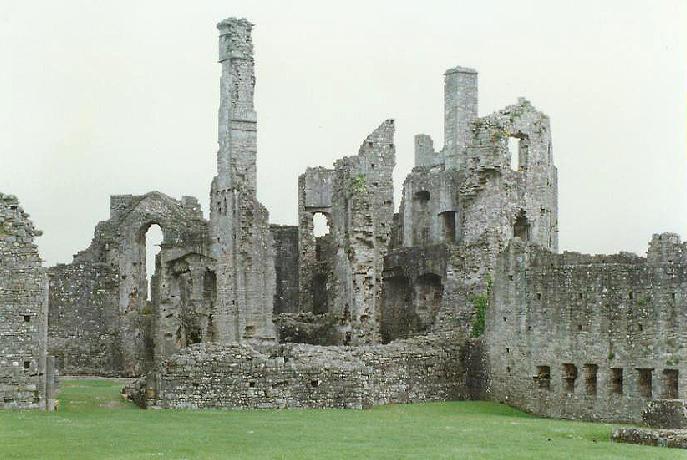Coity Castle in Glamorgan, Wales is a Norman castle built by Sir Payn "the Demon" de Turberville (fl. 1126), one of the legendary Twelve Knights of Glamorgan supposed to have conquered Glamorgan under the leadership of Robert FitzHamon (d.1107), Lord of Gloucester. Now in ruins, it stands in the Community of Coity Higher near the town of Bridgend, in the County Borough of Bridgend. Very close to the castle is the battlemented parish church of St Mary the Virgin, dating from the 14th century.
It is a Grade I listed building.
Castle Construction and Modification Information
The castle began as a late 11th-century ringwork. A rectangular stone keep and the main curtain wall were added by the Normans in the 12th century, under the de Turberville family. The three-storey keep was primarily a defensive structure.
Extensive reworking took place in the 14th century, when a domestic range was attached to the keep by the middle gatehouse. New stone vaults replaced the earlier timber floors. The central octagonal pier for the vaults is still prominent among the castle ruins. An adjoining chapel wing with a tall east window was added to the first floor at the eastern end of the domestic range in the 15th century.
During the 16th century Coity Castle, by then owned by the Gamage family, underwent a complete remodelling of the living quarters, including the addition of a storey, new windows and two chimney stacks. The principal chambers lay on the upper floors. The range of domestic apartments comprised a central first-floor hall set above a vaulted undercroft, from which it was reached by a grand spiral stair. To the west were ground-floor service rooms, probably including a kitchen, with ovens. The base of a ruined large malting kiln remains. On the far side of the range, a tower projecting from the curtain wall contained latrines. The second floor housed private apartments.











